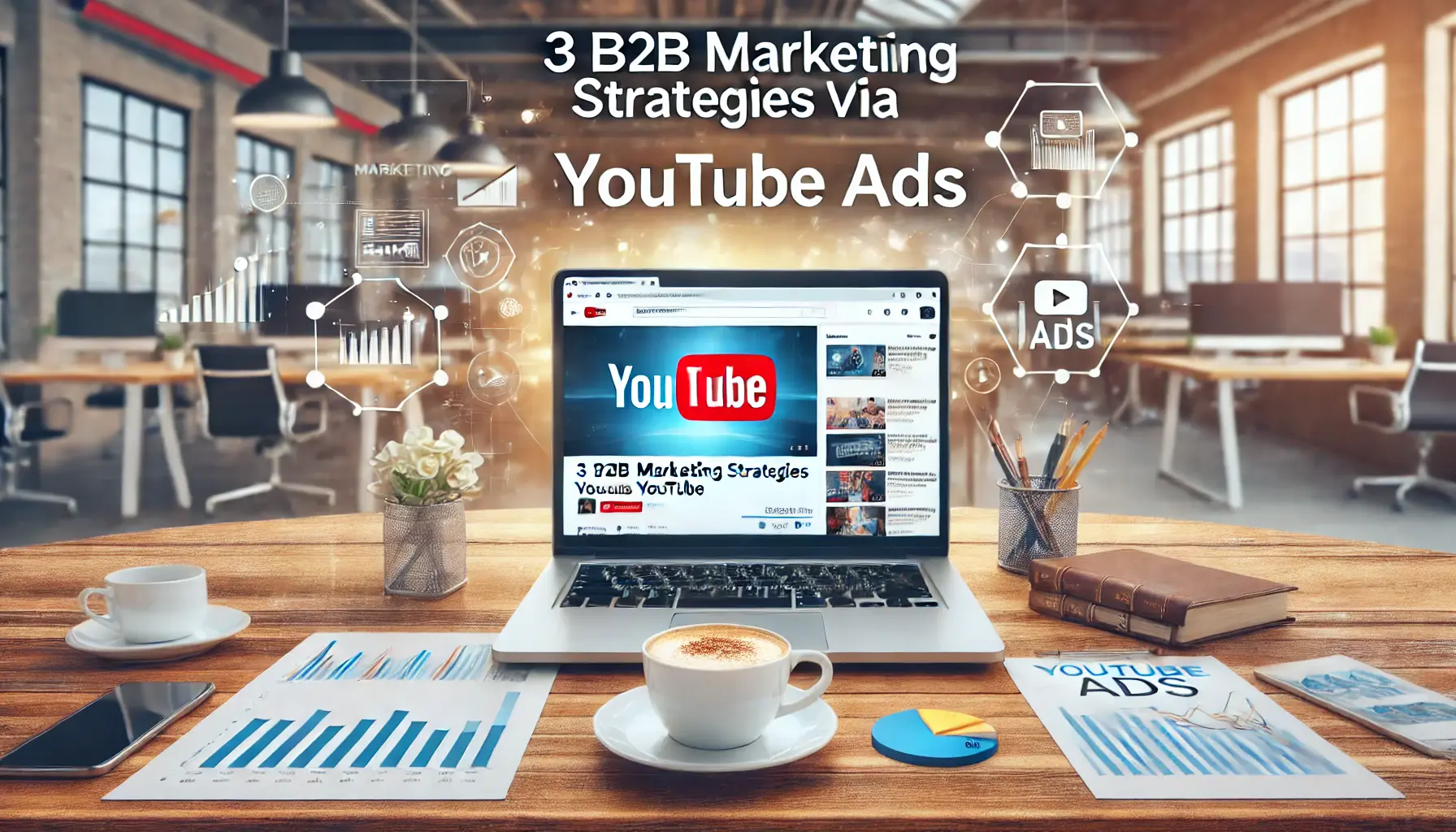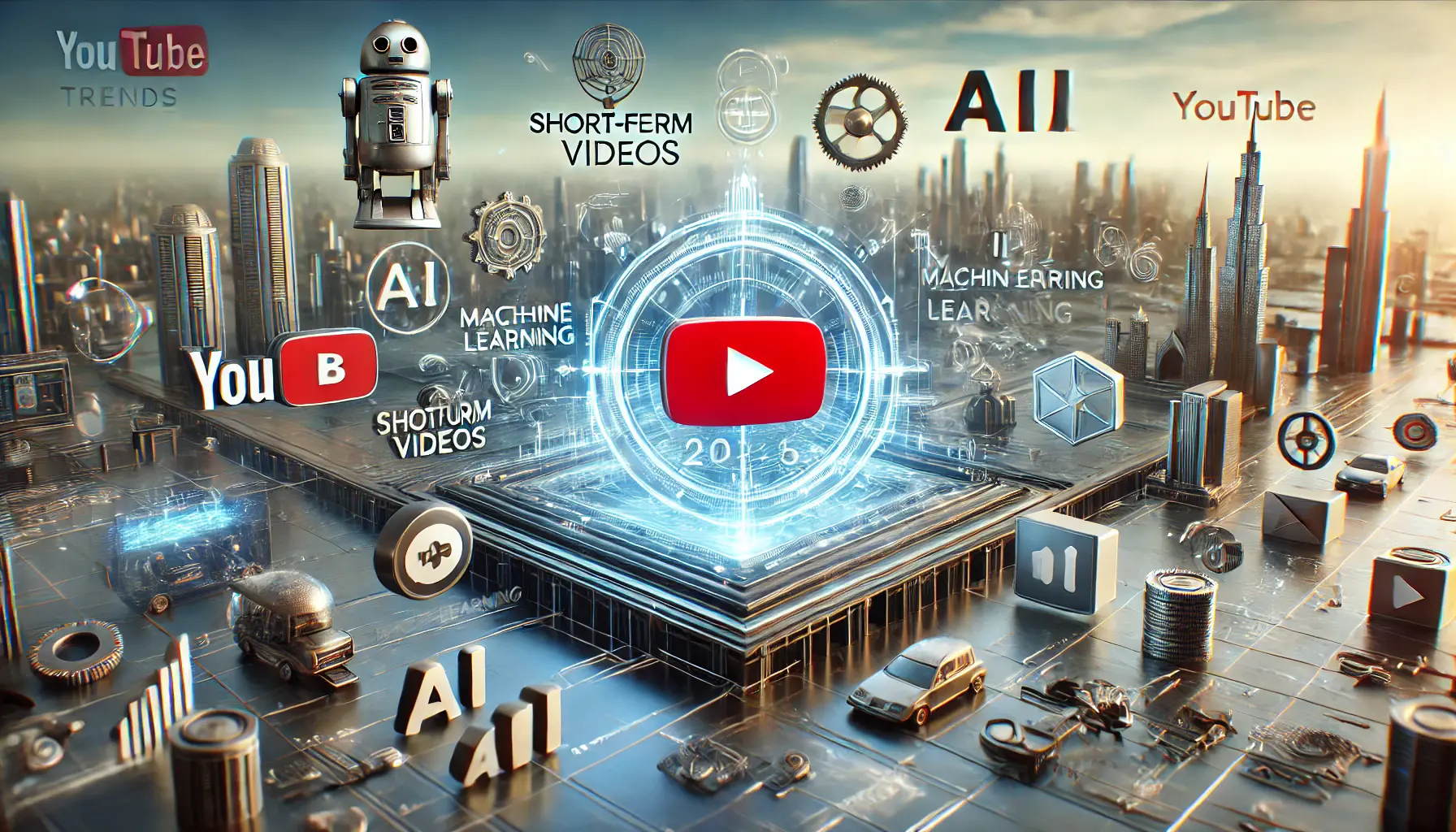The landscape of B2B content marketing is continuously evolving, shaped by technological advancements, shifting buyer behaviors, and the ever-increasing demand for personalized, engaging content.
As we step into 2024, it’s crucial for businesses operating in the B2B sector to stay ahead of the curve, adapting their strategies to leverage the latest trends and technologies.
This not only ensures they remain competitive but also enables them to effectively connect with their target audience, providing valuable insights and solutions to their unique challenges.
In this comprehensive exploration of B2B content marketing trends for 2024, we delve into the strategies and approaches set to dominate the industry.
From the integration of artificial intelligence and data-driven content creation to the rise of video marketing and user-generated content, these trends highlight the importance of innovation and adaptability in today’s digital landscape.
By understanding and implementing these trends, B2B marketers can enhance their content marketing efforts, driving engagement, leads, and ultimately, business growth.
- Embracing Artificial Intelligence in Content Creation
- Video Marketing: Capturing B2B Audiences
- Leveraging User-Generated Content for Authentic Engagement
- Interactive Content: Engaging B2B Buyers
- Personalization and Segmentation: Tailoring the B2B Experience
- Content Optimization for SEO: A Pillar of B2B Strategy
- Measuring Content Marketing Success
- Navigating the Future of B2B Content Marketing
- B2B Content Marketing Trends 2024 FAQs
Embracing Artificial Intelligence in Content Creation
The Rise of AI-Assisted Content
Artificial Intelligence (AI) has revolutionized the way B2B marketers approach content creation, offering tools that streamline the process and enhance creativity.
AI-powered solutions such as natural language generation and content optimization platforms are becoming indispensable for crafting compelling, relevant content.
These technologies not only help in generating ideas and outlines but also ensure the content is optimized for search engines, increasing visibility and engagement.
Moreover, AI’s ability to analyze vast amounts of data provides marketers with insights into content performance, enabling them to tailor their strategies for maximum impact.
By leveraging AI, B2B marketers can create more personalized and targeted content, meeting the specific needs and interests of their audience.
This trend towards AI-assisted content creation is set to grow in 2024, as businesses seek to enhance efficiency and effectiveness in their content marketing efforts.
AI-assisted content creation tools are transforming B2B content marketing by improving efficiency, personalization, and SEO optimization.
Optimizing Content with Data-Driven Insights
The integration of data analytics into content strategy is another significant trend shaping B2B content marketing in 2024.
By analyzing user behavior, engagement metrics, and conversion data, B2B marketers can gain a deeper understanding of their audience’s preferences and pain points.
This information is invaluable for creating content that resonates with the target audience, driving engagement and conversions.
Data-driven content strategies enable marketers to identify the types of content that perform best, the topics that generate the most interest, and the channels that provide the highest ROI.
Armed with these insights, B2B marketers can optimize their content creation and distribution efforts, ensuring they deliver the right message to the right audience at the right time.
As businesses continue to prioritize data in their marketing strategies, the role of analytics in content creation and optimization will only increase in importance.
Video Marketing: Capturing B2B Audiences
The dynamic nature of video content has made it a cornerstone of B2B content marketing strategies in 2024.
With the ability to convey complex information in an engaging and digestible format, video marketing stands out as a powerful tool for connecting with business audiences.
This trend is driven by the increasing preference of buyers for visual content over text, making video an essential medium for storytelling, product demonstrations, and thought leadership.
Key factors contributing to the rise of video marketing in the B2B sector include:
- Enhanced Engagement: Videos have a higher engagement rate compared to other content formats, helping businesses to capture and retain the attention of their target audience.
- Improved Conversion Rates: Incorporating video content into marketing strategies has been shown to boost conversion rates, as it provides a more immersive experience that can effectively convey the value proposition of products or services.
- Increased Accessibility: With advancements in video production tools and platforms, creating high-quality video content has become more accessible for businesses of all sizes, enabling them to leverage this trend without significant investment.
As we move further into 2024, B2B marketers are exploring innovative ways to integrate video into their content marketing mix.
Some of the most effective video marketing strategies include:
- Explainer Videos: Simplifying complex products or services through short, informative videos that highlight key features and benefits.
- Customer Testimonials: Building trust and credibility by showcasing real-life success stories and positive experiences from satisfied clients.
- Live Demos and Webinars: Engaging with the audience in real-time, providing valuable insights, and answering questions directly through live video sessions.
Video marketing is not just a trend; it’s a strategic approach that B2B marketers are using to enhance engagement, improve conversions, and make their content more accessible.
Leveraging User-Generated Content for Authentic Engagement
In the realm of B2B marketing, authenticity and trust are paramount.
User-generated content (UGC) has emerged as a powerful tool to foster genuine connections with audiences.
This trend capitalizes on content created by users, such as testimonials, reviews, and social media posts, to enhance credibility and build trust with potential clients.
UGC acts as a form of social proof, demonstrating the real-world value and effectiveness of products or services through the voices of satisfied customers.
Benefits of UGC in B2B Marketing
User-generated content offers several advantages for B2B marketers looking to strengthen their brand’s authenticity and engage more deeply with their audience:
- Enhanced Trust: Content created by peers or industry colleagues is perceived as more trustworthy and reliable than traditional marketing messages.
- Increased Engagement: UGC encourages interaction and participation from the audience, fostering a sense of community and loyalty around the brand.
- Cost-Effective Content: Leveraging content created by users can reduce marketing costs, as it utilizes existing materials that resonate with the target audience.
Strategies for Incorporating UGC
To effectively integrate user-generated content into their marketing strategies, B2B companies can employ several tactics:
- Encourage Reviews and Testimonials: Actively solicit feedback from satisfied clients and showcase their experiences on your website and social media channels.
- Host Contests and Challenges: Engage your audience by organizing contests that encourage the creation of content related to your brand, products, or services.
- Feature User Stories: Share case studies or success stories that highlight how customers have benefited from your offerings, providing relatable and compelling narratives.
Incorporating user-generated content into your B2B marketing strategy not only enhances authenticity but also deepens engagement with your target audience, leveraging the power of community and trust.
Interactive Content: Engaging B2B Buyers
As B2B content marketing evolves, interactive content has become a key player in engaging and educating potential buyers.
This type of content, which requires active participation from the audience, offers a more immersive and engaging experience compared to passive content forms.
From quizzes and assessments to interactive infographics and calculators, interactive content can significantly enhance the buyer’s journey by providing personalized and relevant information that aids decision-making processes.
Advantages of Interactive Content
Interactive content brings several benefits to B2B marketing strategies, including:
- Increased Engagement: By involving the audience in the content experience, businesses can capture and maintain attention more effectively.
- Higher Conversion Rates: Interactive content has been shown to generate higher conversion rates, as it encourages users to take action, such as submitting contact information or downloading resources.
- Valuable Data Collection: These content types provide insights into user preferences and behaviors, enabling marketers to tailor future content and offers more accurately.
Implementing Interactive Content in B2B Marketing
To leverage the power of interactive content, B2B marketers should consider the following strategies:
- Identify Audience Needs: Develop interactive content that addresses specific questions or challenges faced by your target audience, ensuring relevance and value.
- Utilize Advanced Tools: Take advantage of platforms and software designed to create sophisticated interactive content, such as interactive videos or augmented reality experiences.
- Measure and Optimize: Continuously analyze the performance of interactive content to understand what resonates with your audience, making adjustments to improve engagement and effectiveness.
Interactive content not only captivates B2B buyers but also provides them with a personalized and engaging experience that can accelerate the sales process.
Personalization and Segmentation: Tailoring the B2B Experience
Personalization and segmentation have become indispensable in the B2B content marketing playbook.
In an era where buyers expect content that speaks directly to their needs and challenges, the ability to deliver tailored messages has never been more critical.
Personalization involves crafting content and experiences that resonate with individual prospects or customer segments, while segmentation divides the audience into groups based on shared characteristics or behaviors, allowing for more targeted and relevant marketing efforts.
Driving Engagement Through Personalization
Personalized content marketing strategies are designed to enhance the relevance and effectiveness of B2B marketing efforts.
By leveraging data on buyer preferences, behaviors, and past interactions, marketers can create content that addresses the specific interests and needs of their audience.
This approach not only improves engagement rates but also fosters a deeper connection with the brand, as prospects feel understood and valued.
Maximizing Impact with Segmentation
Segmentation plays a pivotal role in refining marketing strategies to ensure the right content reaches the right audience.
By categorizing prospects based on criteria such as industry, company size, role, or stage in the buying cycle, B2B marketers can tailor their messaging and content offerings to match the unique context of each segment.
This targeted approach significantly increases the chances of resonating with the audience, leading to higher conversion rates and more efficient use of marketing resources.
- Implement Dynamic Content: Use dynamic content on your website and in email campaigns that adapts based on the viewer’s characteristics and past interactions with your brand.
- Leverage CRM Data: Utilize customer relationship management (CRM) systems to gather and analyze data on your prospects and customers, enabling more precise personalization and segmentation.
- Conduct A/B Testing: Regularly test different versions of your content with various segments to identify the most effective strategies and continuously refine your approach.
By embracing personalization and segmentation, B2B marketers can significantly enhance the relevance and impact of their content, driving better marketing outcomes and deeper customer relationships.
Content Optimization for SEO: A Pillar of B2B Strategy
In the digital age, the visibility of your content in search engine results is crucial for reaching potential B2B buyers.
Content optimization for SEO is not just about incorporating keywords; it’s a comprehensive approach that ensures your content is discovered, relevant, and valuable.
As search algorithms become more sophisticated, B2B marketers must refine their SEO strategies to align with best practices, focusing on quality, relevance, and user experience.
Key Components of SEO-Driven Content
To optimize content for SEO, several key components must be considered:
- Keyword Research: Identifying the right keywords and phrases that your target audience uses in their search queries is foundational. This involves understanding the language of your industry and the specific terms used by your prospects.
- Quality Content: Search engines prioritize content that is informative, well-written, and provides value to the reader. High-quality content is more likely to earn backlinks, which are critical for SEO.
- User Experience: Ensuring your website is easy to navigate, loads quickly, and is mobile-friendly affects your search rankings. A positive user experience keeps visitors on your site longer, reducing bounce rates and improving SEO performance.
Optimizing Content for Search Intent
Understanding and aligning with search intent is essential for effective SEO.
Search intent refers to the reason behind a search query—whether the user is looking for information, comparing products, or ready to make a purchase.
By creating content that matches the intent of your target audience at different stages of the buyer’s journey, you can improve your content’s visibility and relevance in search results.
- Informational Content: For users seeking knowledge or answers to specific questions, informational content such as blog posts, guides, and whitepapers can attract and engage these prospects.
- Comparative Content: For users comparing options, comparative content like case studies, product comparisons, and reviews can help position your offerings favorably.
- Transactional Content: For users ready to make a purchase, transactional content such as product pages, pricing information, and special offers can facilitate the decision-making process.
Ignoring the importance of SEO in content creation can lead to missed opportunities for visibility and engagement with your target B2B audience.
Measuring Content Marketing Success
In the ever-evolving landscape of B2B marketing, the ability to measure the success of content marketing efforts is crucial.
It enables marketers to understand what resonates with their audience, which strategies drive ROI, and how to allocate resources effectively.
As we navigate through 2024, the emphasis on data-driven decision-making has never been more pronounced, pushing B2B marketers to adopt comprehensive analytics tools and metrics to gauge their content’s performance accurately.
Essential Metrics for Content Evaluation
To effectively measure content marketing success, several key metrics should be monitored:
- Engagement: Metrics such as time on page, bounce rate, and social shares offer insights into how engaging your content is for your audience.
- Lead Generation: The number of leads generated through content marketing efforts indicates the effectiveness of your content in moving prospects through the sales funnel.
- Conversion Rates: Tracking how many leads turn into customers can help assess the direct impact of content on sales.
- SEO Performance: Rankings, organic traffic, and keyword performance provide valuable information on how well your content is optimized for search engines.
Adopting a Holistic Approach to Measurement
While these metrics are critical, successful B2B content marketing measurement requires a holistic approach.
This involves integrating data from various sources, including website analytics, CRM systems, and social media analytics, to gain a comprehensive view of content performance.
By correlating different data points, marketers can uncover deeper insights into customer behavior, content preferences, and the buyer’s journey.
Furthermore, it’s essential to align content marketing metrics with broader business goals.
Whether the aim is to increase brand awareness, generate leads, or drive sales, the success of content marketing should be evaluated based on its contribution to achieving these objectives.
This alignment ensures that content marketing efforts are strategic, focused, and aligned with the company’s overall vision and goals.
Regularly reviewing and adjusting your content marketing strategy based on performance metrics is key to staying relevant and effective in the competitive B2B landscape.
Navigating the Future of B2B Content Marketing
As we’ve explored the dynamic landscape of B2B content marketing in 2024, it’s clear that staying ahead requires a blend of innovation, adaptability, and strategic foresight.
The trends highlighted throughout this article underscore the importance of leveraging technology, understanding audience needs, and creating content that not only informs but also engages and converts.
The integration of artificial intelligence, the rise of video marketing, the authenticity of user-generated content, the interactivity of digital experiences, the precision of personalization and segmentation, the necessity of SEO optimization, and the critical role of analytics in measuring success form the pillars of a robust B2B content marketing strategy.
Key Takeaways for B2B Marketers
To thrive in the evolving digital marketplace, B2B marketers should focus on:
- Embracing AI and machine learning technologies to enhance content creation and personalization.
- Leveraging video content to capture the attention of a visually driven audience.
- Incorporating user-generated content to build trust and credibility with potential buyers.
- Creating interactive content to provide engaging and memorable experiences.
- Utilizing data-driven insights for content personalization and segmentation to meet the specific needs of each audience segment.
- Optimizing content for SEO to improve visibility and reach in search engine results.
- Employing comprehensive analytics to measure the impact of content marketing efforts and inform strategic decisions.
The journey through B2B content marketing in 2024 is one of continuous learning and adaptation.
By staying informed about the latest trends and technologies, and by applying these insights to craft compelling, relevant, and valuable content, B2B marketers can effectively engage their target audiences, drive meaningful interactions, and achieve their business objectives.
The future of B2B content marketing is bright for those who are prepared to innovate, personalize, and measure their way to success.
Want your website to top Google search rankings? Leave the SEO to our professional agency!
B2B Content Marketing Trends 2024 FAQs
Explore the most common inquiries surrounding B2B content marketing trends in 2024 to stay ahead in your marketing strategies.
AI enhances content creation, personalization, and analytics, enabling marketers to produce highly relevant and engaging content efficiently.
Video content effectively communicates complex information, increases engagement, and improves conversion rates for B2B audiences.
User-generated content builds trust and authenticity, encouraging more genuine engagement from potential B2B clients.
Interactive content boosts engagement by providing personalized and immersive experiences for the audience, enhancing lead generation.
Personalization tailors content to meet specific audience needs, significantly improving relevance, engagement, and conversion rates.
SEO ensures content visibility in search results, driving organic traffic and enhancing the discoverability of B2B offerings.
Success is measured through engagement metrics, lead generation, conversion rates, and SEO performance, aligning with business objectives.
Trends include AI-driven content creation, video marketing, user-generated content, interactive experiences, personalization, SEO optimization, and data-driven success measurement.










